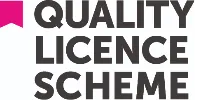Categories
-
Accredited Qualification
- Psychology
- test
- Interior Design
- Customer Service
- Risk Management
- Construction Management
- Project Management
- Fashion Design
- Teaching Assistant
- Life Coaching
- Cyber Security
- Travel and Tourism
- Warehouse Management
- Facilities Management
- Environmental Management
- Event Management
- Public Relations
- Forensic Accounting
- Bookkeeping
- Digital Marketing
- Counselling Skills
- Security Management
- Food Hygiene
- Supply Chain Management
- HR Management
- Diet and Nutrition
- Leadership and Management
- Accounting and Finance
- Hotel Management
- Remote Work Careers: Courses for Success
- Business Studies
- Beauty Therapy and Salon Management
- Artificial Intelligence (AI)
-
Endorsed Courses
- Forensic Accounting
- Construction Management
- Project Management
- Fashion Design
- Supply Chain Management
- Accounting and Finance
- Business Studies
- Hotel Management
- Diet and Nutrition
- Management
- Beauty Therapy
- Marketing
- Customer Services
- Event Management
- Public Relations
- Interior Design
- Health and Safety
- Risk Management
- Psychology
- Trainer Courses
- Environmental Management
- Leadership & Management
- Wedding Planning
- Facilities Management
- Admin, Secretarial & PA
- Cyber Security
- Travel and Tourism
- Life Coaching
- Human Resource Management
- Warehouse Management
- Digital Marketing
- Logistics Management
- Bookkeeping
- Teaching Assistant
- Food Hygiene
- Counselling Skills
- Security Management
- AI
- CPD Courses


![<php echo $related_row['name']; ?>](https://www.oxfordhomestudy.com/images/subject/1709828470Accountingandfinanceendorsed1.webp)
![<php echo $related_row['name']; ?>](https://www.oxfordhomestudy.com/images/subject/1709828479accountingandfinanceendorsed2.webp)
![<php echo $related_row['name']; ?>](https://www.oxfordhomestudy.com/images/subject/1709828499accountingandfinanceendorsed4.webp)
![<php echo $related_row['name']; ?>](https://www.oxfordhomestudy.com/images/subject/1709828510accountingandfinanceendorsed5.webp)
![<php echo $related_row['name']; ?>](https://www.oxfordhomestudy.com/images/subject/1709828521accountingandfinanceendorsed6.webp)
![<php echo $related_row['name']; ?>](https://www.oxfordhomestudy.com/images/subject/1709828538accountingandfinanceendorsed7.webp)
![<php echo $related_row['name']; ?>](https://www.oxfordhomestudy.com/images/subject/1710846226CPAcpdcategory.webp)